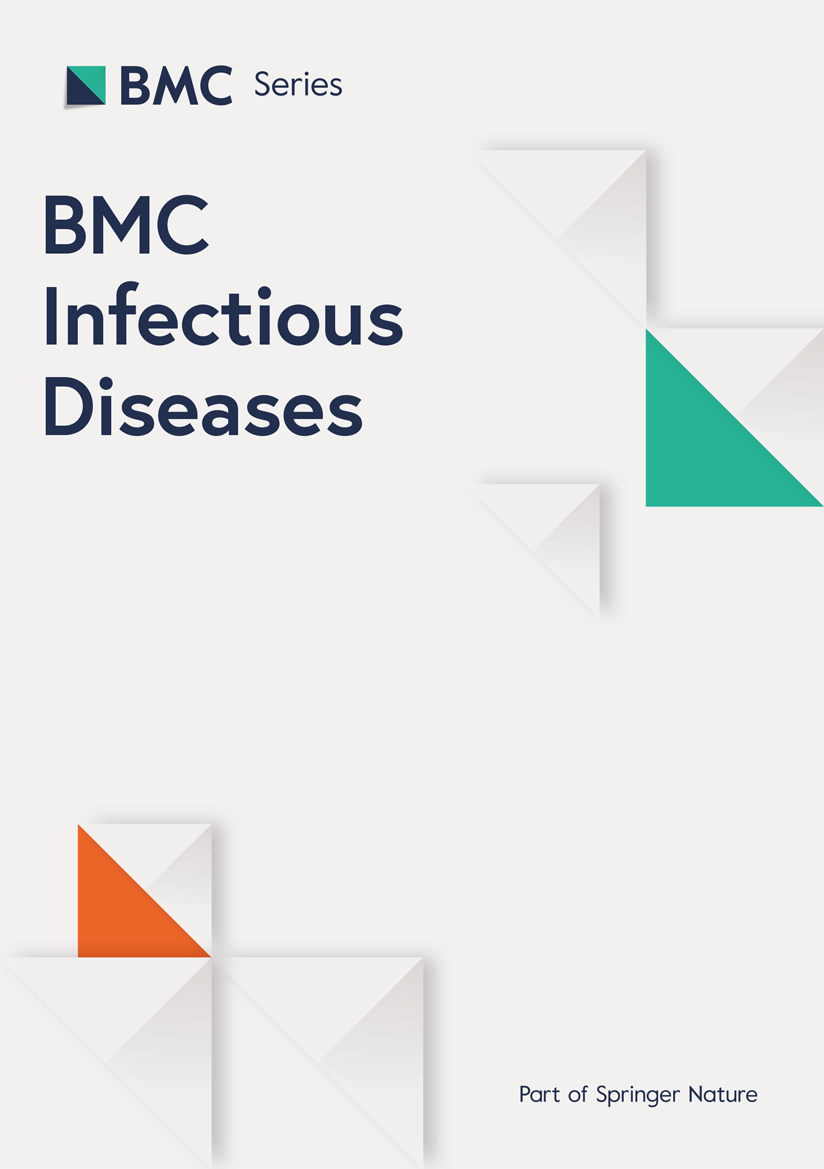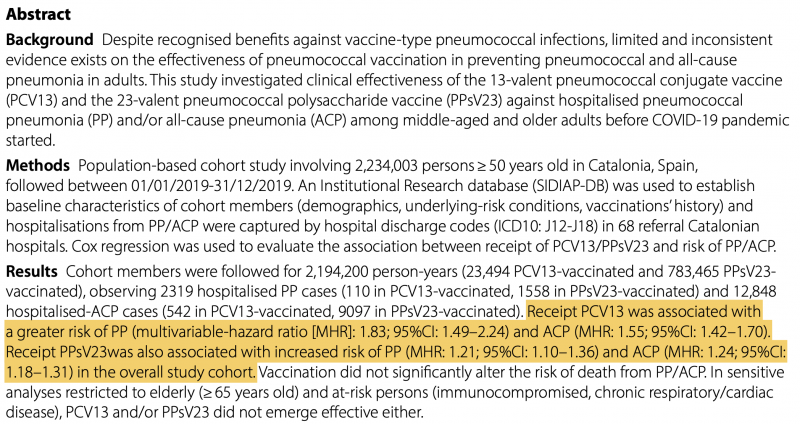impf-info.de
Nachdem Covid19 aus medizinischer Sicht "durch" ist, hier jetzt also wieder das Thema Impfen in ganzer Breite...
Pneumokokken - Impfung erhöht Pneumonie-Risiko Älterer in real world-Studie
Eine Kohortenstudie aus Spanien untersuchte die Effektivität, mit der aktuell auch in Deutschland empfohlene Pneumokokken-Impfstoffe Ältere von Lungenentzündungen (Pneumonien) schützten - denn das ist ja die Rationale hinter der entsprechenden Impfempfehlung.
Das Ergebnis war mehr als ernüchternd: sowohl das Risiko für Pneumokokken-Pneumonien, als auch das für Pneumonien jedweder Ursache war für Geimpfte signifikant erhöht, teilweise fast verdoppelt.
h/t @MartinHirte - DANKE, lieber Martin.

Real world effectiveness of antipneumococcal vaccination against pneumonia in adults: a population-based cohort study, Catalonia, 2019 | BMC Infectious Diseases | Full Text
Despite recognised benefits against vaccine-type pneumococcal infections, limited and inconsistent evidence exists on the effectiveness of pneumococcal vaccination in preventing pneumococcal and all-cause pneumonia in adults. This study investigated clinical effectiveness of the 13-valent pneumococcal conjugate vaccine (PCV13) and the 23-valent pneumococcal polysaccharide vaccine (PPsV23) against hospitalised pneumococcal pneumonia (PP) and/or all-cause pneumonia (ACP) among middle-aged and older adults before COVID-19 pandemic started. Population-based cohort study involving 2,234,003 persons ≥ 50 years old in Catalonia, Spain, followed between 01/01/2019-31/12/2019. An Institutional Research database (SIDIAP-DB) was used to establish baseline characteristics of cohort members (demographics, underlying-risk conditions, vaccinations’ history) and hospitalisations from PP/ACP were captured by hospital discharge codes (ICD10: J12-J18) in 68 referral Catalonian hospitals. Cox regression was used to evaluate the association between receipt of PCV13/PPsV23 and risk of PP/ACP. Cohort members were followed for 2,194,200 person-years (23,494 PCV13-vaccinated and 783,465 PPsV23-vaccinated), observing 2319 hospitalised PP cases (110 in PCV13-vaccinated, 1558 in PPsV23-vaccinated) and 12,848 hospitalised-ACP cases (542 in PCV13-vaccinated, 9097 in PPsV23-vaccinated). Receipt PCV13 was associated with a greater risk of PP (multivariable-hazard ratio [MHR]: 1.83; 95%CI: 1.49–2.24) and ACP (MHR: 1.55; 95%CI: 1.42–1.70). Receipt PPsV23was also associated with increased risk of PP (MHR: 1.21; 95%CI: 1.10–1.36) and ACP (MHR: 1.24; 95%CI: 1.18–1.31) in the overall study cohort. Vaccination did not significantly alter the risk of death from PP/ACP. In sensitive analyses restricted to elderly (≥ 65 years old) and at-risk persons (immunocompromised, chronic respiratory/cardiac disease), PCV13 and/or PPsV23 did not emerge effective either. This study did not find evidence of the clinical effectiveness of PPsV23/PCV13 vaccination in preventing the outcomes measured at population-based level. At present, new extended-valency, PCVs (PCV15/PCV20/PCV21) have been marketed for using in adults and, logically, vaccines’ effectiveness must be re-evaluated in the coming years.
By accepting you will be accessing a service provided by a third-party external to https://impf-info.de/

